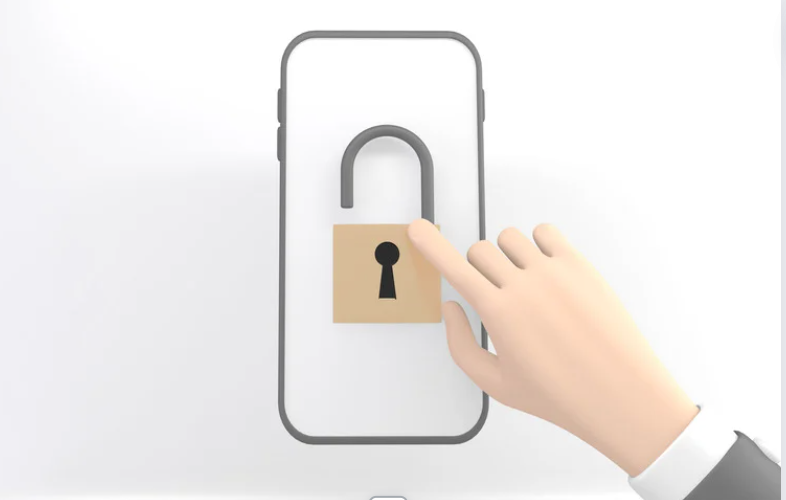Navigating The Digital Landscape: Your Privacy on Social Media.
It’s pretty well known by now, that social media isn’t particularly great for protecting our privacy. While there’s been many notable data breaches over the years, data is also often provided to third party providers for various reasons providing a fire hose of information about our associations, browser habits and more. These factors, along with the prevalence of open source intelligence techniques mean that a badly secured social media account can provide a significant amount of personal information about you. Today’s article is the first in a multi part series that will look at some of the considerations around maintaining privacy and assessing risk. After this, we’ll have some step by step walk through’s showing how to best lock down accounts on various social media sites.
Assessing Your Risk Level
Before we change anything, our first step is to have a talk about risk and convenience. Like anything in life, the tolerance and appetite for risk tends to vary between people. Because of this, it’s important to base your considerations on your own circumstances rather than using a one size fits all approach. This means considering thing like your threat level or viability, your habits in regard to browsing and most importantly, what level of information you’re willing to provide as a trade of for using said social media. While you don’t have to go overboard planning this type of thing, having some general thoughts and considerations around it can definitely be helpful as you consider making changes to your online security. In terms of convenience, generally most security considerations come with a convenience trade off. So again, understanding where you sit in relation to this will be useful as you start to go about making changes.
Assessing Your Current Privacy Settings
The first line of defense in safeguarding your privacy is to review and update your current privacy settings regularly. Start by logging into your social media accounts and navigating to the privacy or security settings section. Adjust who can see your posts, limit friend requests, and customize your profile visibility. Look for any changes that may have been made and see if there’s anything you notice that may cause you issues.
Strong Password Practices
A robust and unique password is your first line of defense against unauthorized access. Avoid using easily guessable passwords and consider using a combination of letters, numbers, and symbols. Additionally, using a password manager can help you keep track of complex passwords for each of your accounts.
Two-Factor Authentication (2FA)
Enhance the security of your social media accounts by enabling two-factor authentication. This extra layer of protection requires you to verify your identity through a second method, such as a code sent to your mobile device. This simple step can significantly reduce the risk of unauthorized access.
Mindful Posting and Sharing
Think before you post. Avoid sharing sensitive personal information such as your home address or phone number. Be mindful of the potential consequences of sharing your location in real-time, especially if your profile is public. It can also be useful to think contextually as you’re posting. One small piece of information may not give you away, but over thousands of posts this may eventually change.
Regular Privacy Audits
Set a recurring reminder to conduct privacy check-ups on your social media accounts. Ensure that your settings align with your comfort level regarding the visibility of your information. Regular audits help you stay in control of your digital footprint.
Third-Party Apps and Permissions
Review the permissions granted to third-party apps connected to your social media accounts. Remove any apps that no longer serve a purpose or require excessive access to your personal data. Restricting app permissions minimizes the potential for data misuse and viruses have spread using third-party applications in the past.
Public vs. Private Profiles
Consider the visibility of your profile. While having a public profile can help you connect with a broader audience, it also exposes more of your information. Evaluate your comfort level and adjust your profile settings accordingly.
Social Engineering Awareness
Be cautious of unsolicited messages and friend requests. Social engineering attacks often start with seemingly harmless interactions. Avoid sharing personal information with strangers, and report any suspicious activity to the platform. It’s also reasonably common for viruses and phishing links to come from a known associate. This isn’t your friend trying to hack you. This is your friend being hacked and the hacker using direct messaging or posting to increase the chances of clicking a malicous link. A suspicious mind will take you a long way with regards to managing this scenario.
Information Harvesting
While we did mention it earlier, the importance of considering this issue means it gets it’s own paragraph. If you’re an activist or in the political space, then it’s fair to say that your circumstances come with their own unique considerations and managing the risk of information harvesting is one of these. Due to the rise of AI and other automation tools the processing of data for uncovering information has became vastly easier. While there’s always been plenty of command line tools for processing large amounts of data, the ability to do so in recent years has increased as the technology has arisen. While memes and mega threads are great fun, it’s worth remembering that bad actors occupy the same spaces that we use and that ‘active measures” are often used as a way to identify or dox people.
Browser Extensions & VPN’s
Our last consideration on this topic will be around the usage of privacy focused browser extensions and the usage of VPN’s to assist in mitigating privacy risks. While the topic of “anonymous” browsing can is worth an entire article of it’s own, it’s fair to say that the topic can become a bit of a rabbit hole. This means you’ll see conflicting opinions, wrong information and a whole bunch of other things telling you if you don’t do everything then you shouldn’t bother.
Generally speaking though, there are a few simple extensions we can apply without going too far overboard. Privacy Badger is great for blocking trackers and CyberGhost provide a cookie cleaner that can be used to automatically clear tracking cookies during your browser sessions. A VPN or good proxy server is also a worthwhile consideration. While it won’t provide foolproof protections it will provide an additional layer to your security onion should you need it.
A VPN or good proxy server is also a worthwhile consideration. While it won’t provide foolproof protections it will provide an additional layer to your security onion should you need it.
Useful Links
Here’s a few useful links to get you started along the way:
Get Encrypted Email and a VPN for free via Proton VPN
Check Your Tracking Footprint via EFF’s Tracker
Find Privacy focused Software and Services at Prism Break
Download the Privacy Badger Extension
Advocate for privacy focused internet with EPIC
Conclusion
With all this said, you’d be forgiven for asking why we might use social media at all! But the age of information provides us with plenty of benefits amongst the risk. Managing your online security is like cultivating your social media feed. It provides you with a space online where you can feel comfortable engaging with people. Being proactive with managing this gives the peace of mind that you’ve taken appropriate steps to keep yourself and your information secure.
Medium has recently made some algorithm changes to improve the discoverability of articles like this one. These changes are designed to ensure that high-quality content reaches a wider audience, and your engagement plays a crucial role in making that happen.
If you found this article insightful, informative, or entertaining, we kindly encourage you to show your support. Clapping for this article not only lets the author know that their work is appreciated but also helps boost its visibility to others who might benefit from it.
🌟 Enjoyed this article? Support our work and join the community! 🌟
💙 Support me on Ko-fi: Investigator515
📢 Join our Telegram channel for exclusive updates or.
🐦 Follow us on Twitter and
🟦 We’re now on Bluesky!
🔗 Articles we think you’ll like:
- Software Defined Radio & Radio Hacking
- OSINT Unleashed: 5 Essential Tools for Cyber Investigators
✉️ Want more content like this? Sign up for email updates here











































![[LIVE] Engage2Earn: Save our PBS from Trump](https://cdn.bulbapp.io/frontend/images/c23a1a05-c831-4c66-a1d1-96b700ef0450/1)









